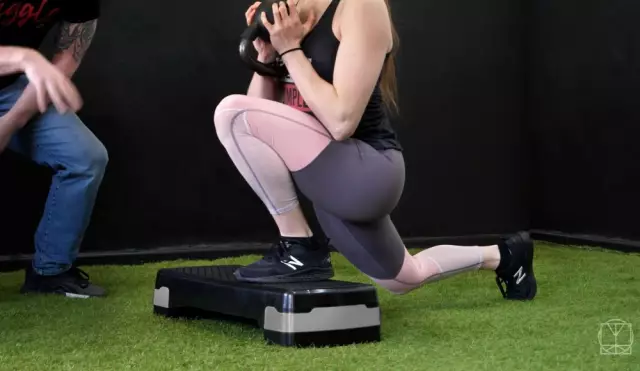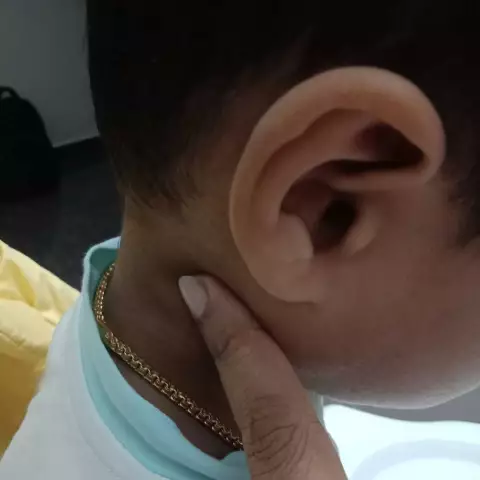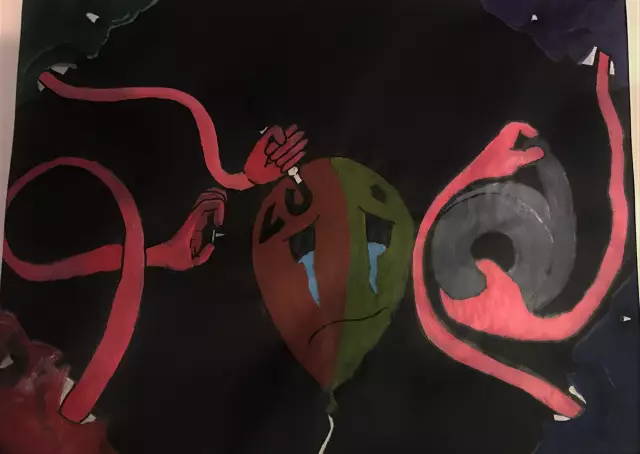- Author Rachel Wainwright wainwright@abchealthonline.com.
- Public 2023-12-15 07:39.
- Last modified 2025-11-02 20:14.
What can tendons hurt?

A tendon is the connective tissue that attaches muscles to the bones of the skeleton, which is made up of bundles of collagen fibers. Despite the fact that it is endowed with high strength, exorbitant physical activity and too zealous sports often lead to the development of pathogenic processes inside it. That is why doctors note: that tendons hurt, patients complain almost as often as problems with blood pressure.
Tendons hurt, the main reasons
Any pain of a chronic nature gives a person great discomfort. When the tendons hurt, the pain is usually exacerbated by the slightest movement or touching the affected area. The patient is forced to constantly monitor his usual activity, which leads to a limitation of the mobility of the nearby joint.
Let's consider the most common reasons why tendons hurt:
- Physical injury;
- Tendinitis
- Tendinosis;
- Tenosynovitis.
Tendons often hurt due to physical injury. Strong physical exertion on this area leads to rupture of the connective tissue. As already noted, the tendon is highly durable, but when it is subjected to regular excessive stress that exceeds its physiological resource, tissue degeneration is almost inevitable. The development of such a degenerative process is usually facilitated by:
- Inflammatory processes;
- Metabolic disorders;
- Hypothermia;
- Deterioration of blood supply.
Experts note that when tendons hurt due to injury, we can talk about complete or partial rupture. That is, the process can affect either the tendon itself or the area of its attachment to the bone. It should be noted that when a tendon ruptures, the bone attached to it, as a rule, is not damaged. In addition, in the case when degenerative changes in the tissue are not observed, the separation of the tendon from the bone occurs quite rarely.
The main symptoms of a tendon rupture are:
- Restriction of movement in the area of the injured muscle;
- Puffiness;
- Sharp pain in the area of separation, aggravated by jerky movements.
The rupture of the tendons of the hands is usually incomplete. In the event of a complete rupture, the muscle that breaks off the tendon is greatly reduced in length, forming a tubercle over the skin of the affected area.
Another answer to the question of why tendons hurt may be such a common inflammatory disease as tendonitis. This type of tendon irritation is most susceptible to people who spend a long time at the computer or simply in an uncomfortable position, without following the correct posture. Also, the development of such a disease threatens those who do not perform stretching exercises before embarking on a strong physical activity. In addition to the above reasons, the occurrence of this disease can be triggered by:
- Arthritis of the joints;
- Incorrect placement of organs and parts of the musculoskeletal system;
- Infectious diseases;
- Some pathologies of the musculoskeletal system (for example, gout, rheumatoid arthritis, etc.);
- Individual intolerance to specific drugs.
With tendinitis, tendons and adjacent tissues hurt. Painful sensations can increase gradually, or they can begin suddenly. The attacks of pain are especially severe if the patient has calcium deposits. Also, this disease is characterized by impaired mobility in the upper arm, which leads to the so-called frozen shoulder syndrome. Most often, tendonitis hurts:
- Thumb;
- Elbow;
- Shoulder;
- Hips;
- Knees;
- Heels.
In many cases, tendinitis is associated with tendinosis. This disease can be characterized as a degenerative process in the tissues of the tendons, which is not associated with inflammation. With prolonged physical exertion, the cartilage tissue between the tendon fibers ossifies. This is how various bone growths are formed: spurs, osteophytes and thorns.
In addition, rheumatic diseases can also lead to the development of tendinosis. With this disease, tendons usually hurt when a person makes active movements in which the affected area is involved. As a rule, passive movements do not cause strong painful sensations. On palpation of the affected area, acute pain is also observed. Tendon movements in tendinosis are often accompanied by a crackling or crunching sound. An additional symptom of this disease is often overheating of the area of the affected tendon, as well as hyperemia: blood overflow of the vessels of an organ or part of the body.
Sometimes a patient, wanting to determine why tendons hurt, receives a diagnosis of tenosynovitis. This pathology, as a rule, is associated with various injuries and infections that have fallen into the area of the tendon bursa. This disease is an inflammation of the paratendon, the outer part of some tendons, which is lined with a synovial membrane. In a particular type of tenosynovitis, for example, the tendons of the muscles that are responsible for the extension of the fingers are affected.
Tendons hurt, treatment
When tendons hurt, treatment can be performed promptly or conservatively. The first method is usually used in severe cases where tendon rupture occurs. The conservative method of treatment involves not only relieving pain in the damaged area, but also eliminating inflammatory processes in the tendon area. For example, with infectious tendinitis, the doctor often prescribes various fortifying and antibacterial drugs, while the treatment of aseptic tendonitis requires the use of non-steroidal anti-inflammatory drugs. Additional effective treatments for tendon pain include:
- Physiotherapy;
- Physiotherapy procedures;
- Ultra-violet rays;
- Microwave therapy;
- Ultrasound.

To relieve swelling and improve blood circulation in the affected area, as well as to restore damaged tissues, many experts recommend the use of therapeutic anti-inflammatory patches.
When tendons hurt, treatment is often done with traditional medicine. To eliminate inflammation in the tendon area, it is necessary to grind the sassaparil root and ginger, then pour one teaspoon of the mixture with a glass of boiling water and leave for 10-15 minutes. This tincture is taken 2 times a day.
Bird cherry juice is known in folk medicine for its anti-inflammatory and tonic properties. Therefore, if the tendons hurt, you can insist on a water bath 3 tablespoons of fresh bird cherry berries, filled with a glass of boiling water and take the broth several times a day.
A tincture of walnut partitions helps with inflammatory processes. For its preparation, a glass of partitions is poured with 0.5 liters of vodka and insisted for 18-20 days. Drinking the tincture is advised daily.
Found a mistake in the text? Select it and press Ctrl + Enter.






